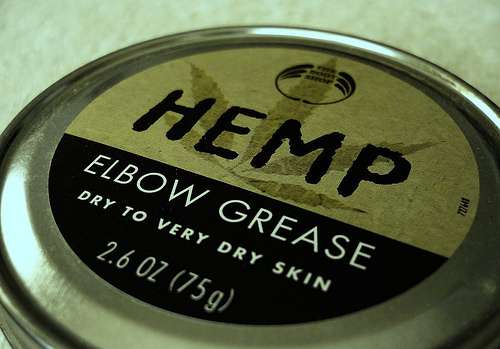The DEA Refused to Discuss a Hemp Waiver With Kentucky's Agricultural Commissioner

Kentucky Agricultural Commissioner James Comer met with some powerful people in D.C. yesterday: a White House staffer, members of the Department of Agriculture and the EPA, and House Speaker Rep. John Boehner (R-Ohio). The reason for his visit is the hemp commission his state created earlier this year. To get it off the ground, Kentucky will need a federal waiver exempting it from the Controlled Substances Act's prohibition of domestic hemp farming.
Wouldn't you know it, the Drug Enforcement Administration reportedly wouldn't give Comer the time of day:
Comer said the DEA told him they didn't "meet with third parties," and wouldn't have met with the state's Democratic governor, Steve Beshear, either. Comer chalked the decision up to the DEA protecting their turf — and their cash.
"I know there's a lot of money appropriated for marijuana eradication," he said.
Not only does the DEA receive ungodly amounts of money to eradicate ditchweed, its also been historically opposed to disguingishing between hemp and marijuana. Here's the DEA's criticism of a 1994 hemp reclassification bill:
Let us be clear that what we are talking about in this Bill is marijuana. Calling it "hemp" on the basis of an artificial threshold level of psychoactive ingredient does not erase the fact that it is botanically and legally the same plant. An illegal drug by any other name is still an illegal drug.
The threshold level of THC content which the Bill proposes as the imaginary dividing line between marijuana and hemp communicates another delusional message. No less an authority than Dr. Charles Ksir of the University of Wyoming points out that the marijuana sold of the streets is the 1960s and 1970s was of this strength. To think that those interested in the criminal use and distribution of marijuana would forsake the "hemp" as defined by the Bill is altogether naive.
DEA Administrator Asa Hutchinson stated that "many Americans do not know that hemp and marijuana are both parts of the same plant and that hemp cannot be produced without producing marijuana."
While most of the THC in cannabis plants is concentrated in the marijuana, all parts of the plant, including hemp, have been found to contain THC. The existence of THC in hemp is significant because THC, like marijuana, is a schedule I controlled substance. Federal law prohibits human consumption and possession of schedule I controlled substances. In addition, they are not approved by the Food and Drug Administration for medical use.
If the DEA holds that hemp and marijuana are indistinguishable (which it does), and also that marijuana and crack cocaine are indistinguishable (yep), it's easy to see why the agency refused to meet with Comer. For a reminder of what Comer and other reformers are up against, here's video of DEA Administrator Michele Leonhart testifying before Congress that marijuana is every bit as dangerous as every other kind of illegal drug:


Show Comments (59)